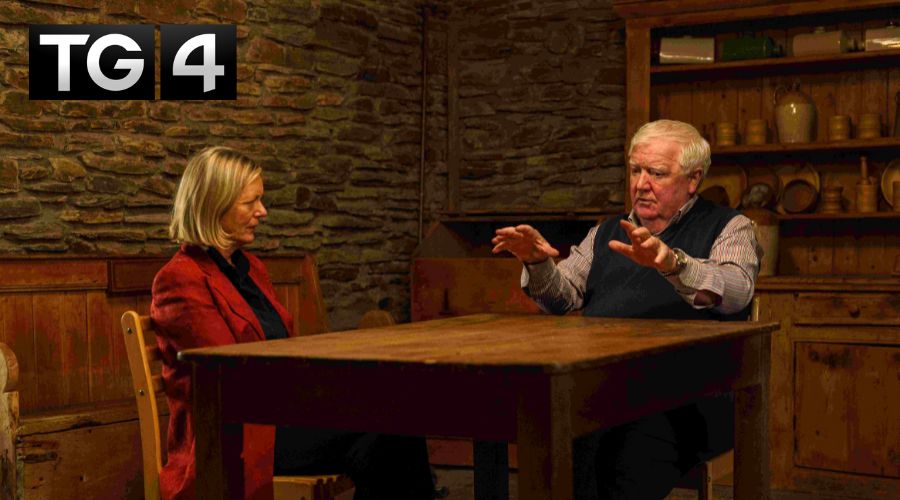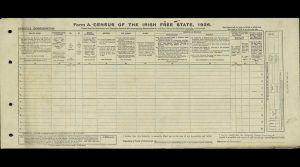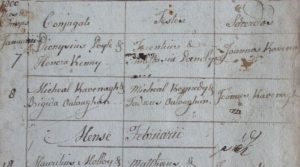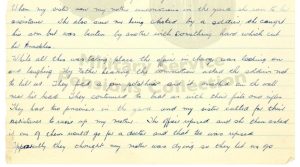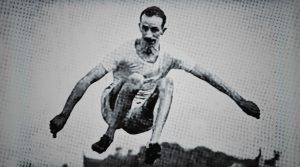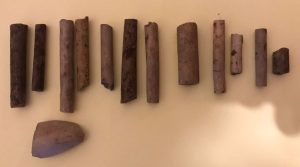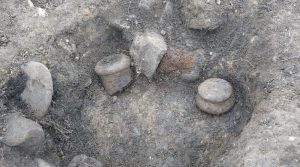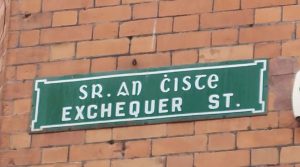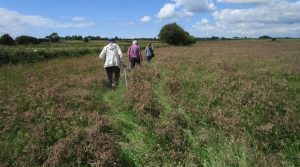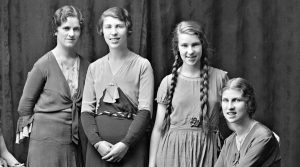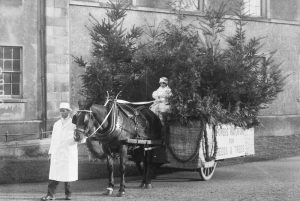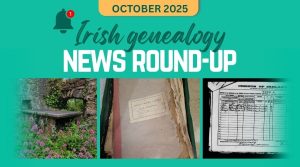TG4’s new docuseries “Sloinne”, which premiers this Sunday, investigates the rich history and lore associated with seven of Ireland’s most common surnames.
“Sloinne”, a brand-new seven-part genealogy series, premiers on TG4 on Sunday, 21 January. Taking a look at the history and folklore surrounding some of Ireland’s most common surnames, this documentary promises an insightful exploration of our Irish heritage and ancestry.
A D V E R T I S E M E N T
In every family, there is a dedicated individual who collects and preserves the family history, ensuring that this valuable information is passed down to the next generation. These individuals serve as the custodians of the stories associated with their surname. Each 50-minute episode of Sloinne (meaning “surname”) features a special guest who, with the help of genealogists and historians, investigates the history of their own family name.
>>> RELATED: Two seasons of Sloinne, TG4’s Irish surname series, now available to watch online
The Irish surnames featured in the new series are: Ó Flaithearta (O’Flaherty), Ó Murchú (Murphy), Ó Ceallaigh (Kelly), Ó Súilleabháin (O’Sullivan), Ó Domhnaill (O’Donnell), Seoighe (Joyce) and Ó Conchubhair (O’Connor).
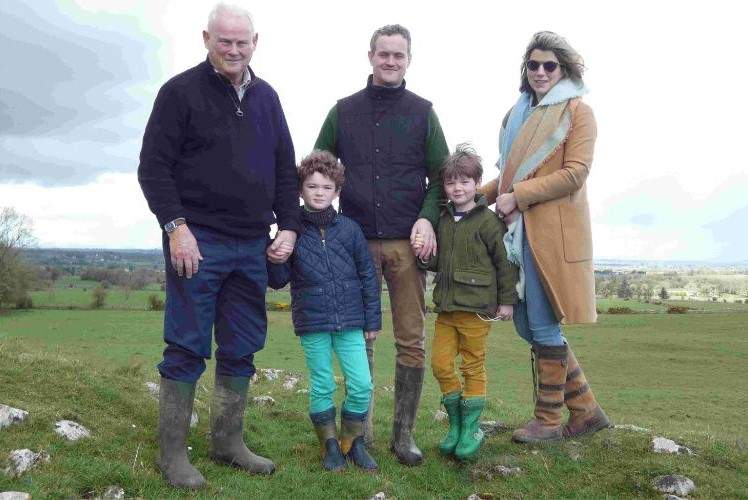
Taking us on a journey back in time, Sloinne’s featured guests visit their ancestral strongholds, while sharing tales of epic battles, murders, and disputes over land and possessions. From the famous to the infamous, a combination of ancient lore and more modern stories concerning those carrying these surnames are recounted to highlight our enduring link to those clan members who came before us.
Sloinne also seeks to demonstrate the intricate relationship between local landscapes and surnames, such as the hills of Donegal, which echo with the historic tales of the O’Donnells or in Counties Galway and Mayo, where the Joyce clan lend their name to the territory still known today as “Joyce Country”.
>>> YOU MIGHT ALSO LIKE: The townland: pathways to Ireland’s past
The first episode of Sloinne airs on Sunday, 21 January, at 8:45pm and follows Mazz O’Flaherty, a record shop owner from Dingle, as she explores the history of the O’Flahertys in Kerry and Galway. Inspired by Oscar Wilde’s alleged O’Flaherty connection, Mazz embarks on a journey to the Aran Islands.
Please help support
Irish Heritage News
A small independent start-up in West Cork
Give as little as €2
Thank You
Airing on Sunday, 28 January, at the slightly earlier time of 8:30pm, the second episode features Noelle Gallagher née Ní Mhurchú, daughter of the late RTÉ broadcaster Liam Ó Murchú. The retired secondary school teacher traces the Murphys through Dublin, Wexford and ultimately to Cork, where the surname is especially prolific.
In Cork, Noelle visits the Murphy Brewery and the North Mon school, where her father was educated. This episode also features the well-known Cork city cobbler Martin Duggan of Shandon Street, who shares his knowledge of the history of the city’s shoemakers.
Sign up to our newsletter
Episode three, which broadcasts on Sunday, 4 February, at 8:30pm, features Aodán Ó Ceallaigh, a Dublin-based primary school teacher originally from An Rinn in Waterford.
Assisted by Dr Micheál Hoyne, a lecturer in the Irish department at Trinity College Dublin, Aodán discovers his surname in Old Irish manuscripts. His journey takes him to the ancient territory of the Uí Ceallaigh sept, visiting Kilconnell Franciscan Friary in Co. Galway and Galey Castle in Co. Roscommon, where Dr Daniel Curley, an archaeologist and historian, explains the origins of the saying “Fáilte Uí Cheallaigh”.
A D V E R T I S E M E N T
Delving into the more recent family history, Aodán makes his way to Helvick Harbour in Co. Waterford to reflect on the life of his grandfather, Tomás Ó Ceallaigh, a well-known fisherman. He also explores the lives of famous individuals boasting his surname, such as the second president of Ireland, Seán T. O’Kelly, actress Grace Kelly and singer Luke Kelly.
Episode four, broadcasting on Sunday, 11 February at 8:30pm, sees Seán Ó Súilleabháin, a Wicklow-based teacher, embark on a quest to uncover the history of the O’Sullivan surname, tracing its roots to Co. Cork.
This episode reflects on the remarkable story of Seán’s grandfather, Daniel O’Sullivan. Born in Skibbereen in West Cork, Daniel, the son of an illiterate dairyman, became one of Wexford’s most respected citizens by the time of his death in 1924, having served as the clerk to the Rural District Council in Wexford. In West Cork, Seán visits St Comhghall’s Church in Lisheen, not far from Skibbereen, where several of his ancestors were married and baptized.
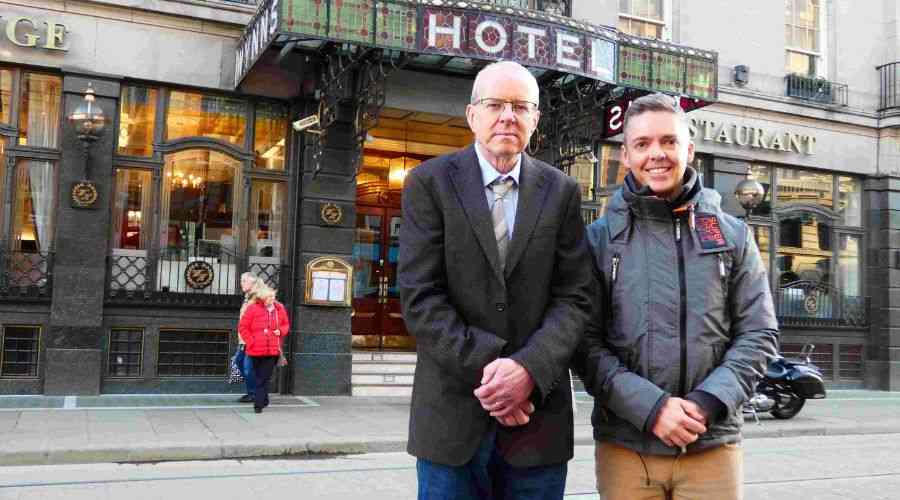
Also in West Cork, Seán explores the ruins of Dunboy Castle on the Beara Peninsula, where he learns about clan leader O’Sullivan Beare and his famous march in 1602. In addition, this episode tells the stories of more recent celebrities bearing the O’Sullivan surname, such as composer Arthur Sullivan of Gilbert and Sullivan fame and actress Maureen O’Sullivan, known for her portrayal of Jane in the Tarzan films.
Airing on Sunday, 18 February, at 8:30pm, the fifth episode in the series features Hannah Ní Dhomhnaill, a postgraduate student at the University of Galway from the Donegal Gaeltacht, as she endeavours to unravel the story behind the O’Donnell surname and her own family history. Hannah’s journey brings her to Rossnowlagh Friary and Donegal Castle, where she meets historian Séamus O’Doherty to discuss the Flight of the Earls and Aodh Rua Ua Domhnaill.
This episode features Dr Nollaig Ó Muráile, who discusses The Great Book of Irish Genealogies (Leabhar Mor nGenealach) and Dr Liam Mac Amhlaigh from Maynooth University, who explores the legacy of Niall Ó Dónaill, the man behind the famous Foclóir Gaeilge–Béarla (Irish-English Dictionary).
A F F I L I A T E A D

There’s also a musical dimension to this episode. Hannah meets with Finbarr Clancy to learn about the history of the song “O’Donnell Abú”, popularized by the Clancy Brothers. She also meets with singer Maighréad Ní Dhomhnaill, who tells her all about her aunt Neilí Ní Dhomhnaill – a famous singer, collector of traditional songs and storyteller.
Episode six, on Sunday, 25 February, at 8:30pm, sees Galway-native Máirtín Seoighe, a graduate of the University of Galway, seek out the story of his surname. In Galway city, Máirtín visits the courthouse to meet lawyer Seán Ó Cearbhaill so he can learn about Maolra Seoighe (Myles Joyce), who was wrongfully convicted and executed in 1882 for the murder of five members of the Joyce family in Maumtrasna valley in Joyce Country.
>>> RELATED: Maolra Seoighe: the hanging of an innocent Connacht man
Also in the city, Máirtín learns about the history of the Claddagh ring and its creator, Richard Joyce, as well as visiting Nora Barnacle’s house to find out about the significant influence Nora had on the writings of her husband, James Joyce. Máirtín’s journey also takes him to Lough Corrib to visit Castlekirk with Seán Seoighe.
A D V E R T I S E M E N T
Episode seven is set to broadcast on Sunday, 3 March, at 8:30pm. This series finale shines a spotlight on the O’Connor surname and follows Frankie Ó Conchubhair from Ros an Mhíl. Dr Kieran O’Conor, archaeology lecturer at the University of Galway, introduces Frankie to the many variations and spellings of the surname, while series genealogist Paul MacCotter has conducted research into the land owned by Frankie’s ancestors in Barna.
Frankie also finds himself in Co. Roscommon at Clonalis House, where Pyers O’Conor Nash proudly shows him around the O’Conor Don estate, which has been in his family for generations. While in Roscommon, Frankie visits the inauguration site of the O’Connor kings of Connacht and meets historian Rena Burke at the tomb of Felim O’Connor, a medieval king of Connacht, in St Mary’s Dominican Priory.
If you can’t tune in live to TG4, you can watch the episodes back online here.
Advertising Disclaimer: This article contains affiliate links. Irish Heritage News is an affiliate of FindMyPast. We may earn commissions from qualifying purchases – this does not affect the amount you pay for your purchase.
READ NOW
➤ Did your ancestor spend time in a workhouse?
➤ Tracing your roots online using old records of Irish gravestone memorials and “Mems Dead”
➤ What the census tells us about Ireland’s first president, Douglas Hyde
➤ Tracing John F. Kennedy’s Irish ancestry through Wexford, Limerick, Cork and Fermanagh
➤ A genealogist’s guide to DNA testing for Irish family history research
A D V E R T I S E M E N T

